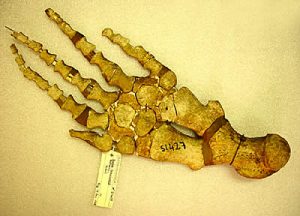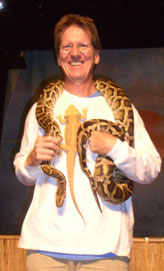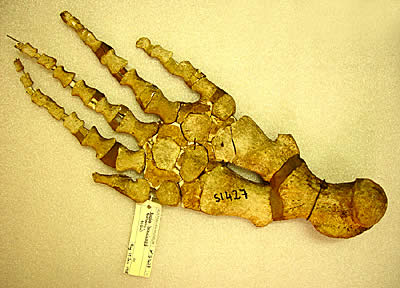
In this week’s episode, we will review breaking Dolphin News from around the world, focus our Science Spotlight on dolphin personalities, and in our Kids’ Science Quickie, we’ll discuss dolphin mittens.
 |
In this week’s science spotlight, we will be discussing dolphin personalities. For this episode, I interview Dr. Stan Kuczaj. Dr. Kuczaj is a professor of psychology at the University of Southern Mississippi, where he is the director of the Marine Mammal Behavior and Cognition program at USM. He was kind enough to join us today so we could discuss his research into dolphin personalities.
|
Dolphin saves stranded whales, Banish the Bags
[ms_audio style=”light” mp3=”https://www.dolphincommunicationproject.org/wp-content/uploads/2022/05/thedolphinpod9dolphinpodnews.mp3″ ogg=”” wav=”” mute=”” loop=”” controls=”yes” class=”dcp-embed-mp3″ id=””]
Moko, a lone sociable dolphin living off the coast of New Zealand, purportedly saved two stranded pygmy sperm whales. Malcolm Smith, a local conservation officer, had attempted to push the stranded whales back into deeper water multiple times, but to no avail. When Moko arrived on the scene however, the whales apparently followed her past a dangerous sandbar and out into the open ocean. While it is unlikely that Moko gave the whales specific instructions to follow her to safely, it certainly appears like her presence was instrumental in helping save these two whales from certain death.
************************
Banish the Bags campaign
The Daily Mail, a UK based newspaper, has launched a campaign to banish the use of plastic bags in Britain, citing the horrendous environmental damage that discarded bags cause. Dolphins and other marine animals, as well as land based animals and birds regularly eat or become entangled in discarded plastic bags, leading to slow and agonizing deaths due to starvation or suffocation. The Daily Mail is petitioning the UK government and local chain stores to implement an outright ban on bags, or at the very least to begin a scheme to charge customers for the use of plastic bags as a means of reducing the number of bags the end up in circulation. Thanks to the campaign, many retailers and supermarkets have already begun pledging to reduce the number of plastic bags they distribute.
************************
Listen to the interview:
[ms_audio style=”light” mp3=”https://www.dolphincommunicationproject.org/wp-content/uploads/2022/05/thedolphinpod9sciencespotlight.mp3″ ogg=”” wav=”” mute=”” loop=”” controls=”yes” class=”dcp-embed-mp3″ id=””]
In this week’s science spotlight, we will be discussing dolphin personalities. For this episode, I interview Dr. Stan Kuczaj. Dr. Kuczaj is a professor of psychology at the University of Southern Mississippi, where he is the director of the Marine Mammal Behavior and Cognition program at USM. He was kind enough to join us today so we could discuss his research into dolphin personalities.
More information and links:
The Marine Mammal Behavior and Cognition program at USM
Sam Gosling’s page on animal personalities at the University of Texas
************************

Dolphin mittens (flippers)
Kids’ Science Quickie:
[ms_audio style=”light” mp3=”https://www.dolphincommunicationproject.org/wp-content/uploads/2022/05/thedolphinpod9kidsciencequickie.mp3″ ogg=”” wav=”” mute=”” loop=”” controls=”yes” class=”dcp-embed-mp3″ id=””]
The ancestors of dolphins were four-legged land based animals who walked the earth many millions of years ago. Over the course of evolution, their bodies slowly adapted to life in the ocean, drastically altering their once familiar dog-like appearance. Dolphins evolved a brand new blowhole structure on the top of their head in order to help them breathe, and what was once their nose with two nostrils became a new kind of structure that helps them create clicking sounds that they use for echolocation. You can see evidence of dolphins’ land-based history by looking at the bones in their pectoral fins. Even though the pectoral fin is shaped a lot like a paddle, the bones that make up the fin still retain the structure of their ancestors: you can easily see what look like 5 fingers and a wrist. It’s almost as if dolphins evolved a giant mitten over their hands to help them steer in the water. To see an image of the bones in a dolphin’s flipper, visit www.thedolphinpod.com

Ceatacean forelimb – from www.locolobo.org/CetaceanEvolution
************************
![]()
What anatomical feature do you find in a dolphin embryo that you won’t find on a dolphin when it’s born?
[ms_audio style=”light” mp3=”https://www.dolphincommunicationproject.org/wp-content/uploads/2022/05/thedolphinpod9dolphinquiz.mp3″ ogg=”” wav=”” mute=”” loop=”” controls=”yes” class=”dcp-embed-mp3″ id=””]
We had quite a few correct answers to last week’s quiz, and our winner (chosen at random) is Brooke who correctly stated that humpback whales have two openings to their blowhole whereas bottlenose dolphins only have one. Now, for this week’s quiz: name a body part that you will see in the first few months of a developing dolphin embryo that you won’t find on a dolphin calf when it is born. Think you know the answer? Surf on over to thedolphnipod.com and click on Dolphin Quiz – leave your answer in the comments section. Winners will randomly be chosen from the correct answers, and will be announced on next week’s show.
*********
Wrap-up:
That’s it for this week’s edition of The Dolphin Pod – thanks for tuning in. If you would like more information about the stories from this week’s episode, check out thedolphinpod.com. If you’ve got questions or comments about this week’s podcast episode, please contact us through the website. Why not consider signing up for the Dolphin Communication Project’s online community? You’ get access to a forum where you can discuss the The Dolphin Pod with other listeners. The DCP website offers a chance to adopt one of our dolphins from the Bahamas, as well as learn more about volunteer, internship and ecotour opportunities.
Don’t forget to join us next week for more dolphin science news and info. And remember, the dolphin pod is only a click away.

